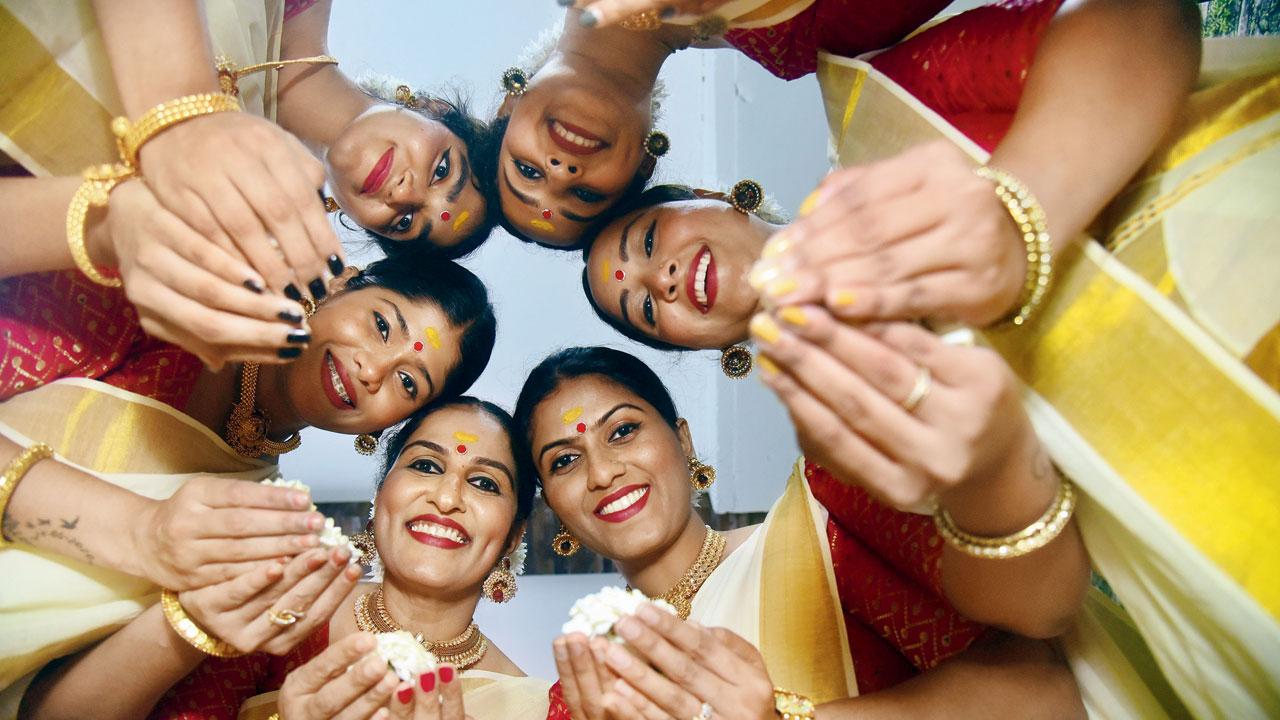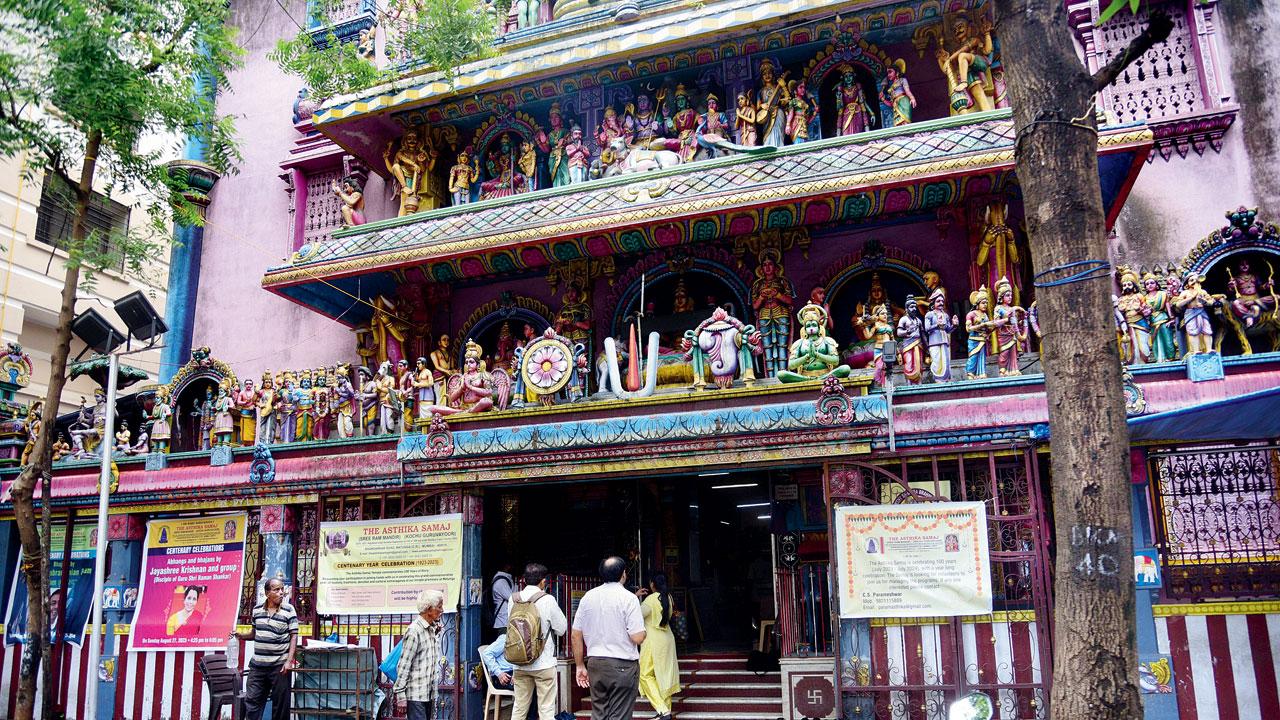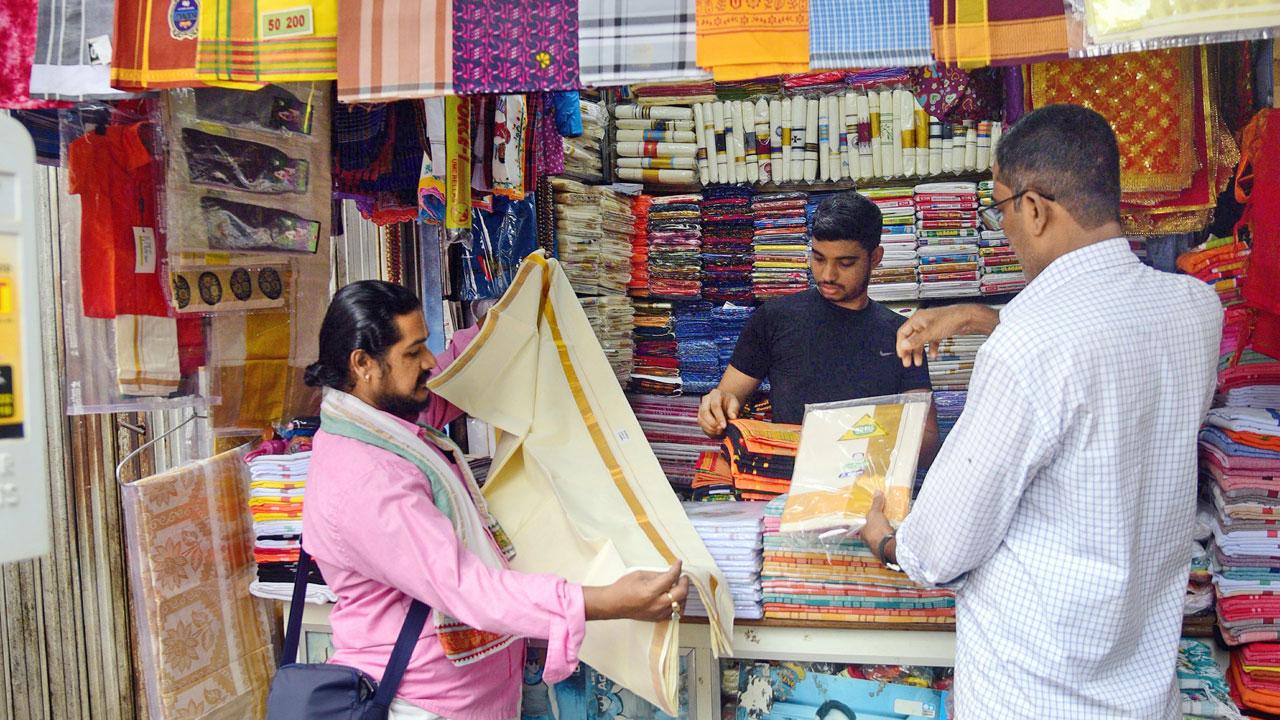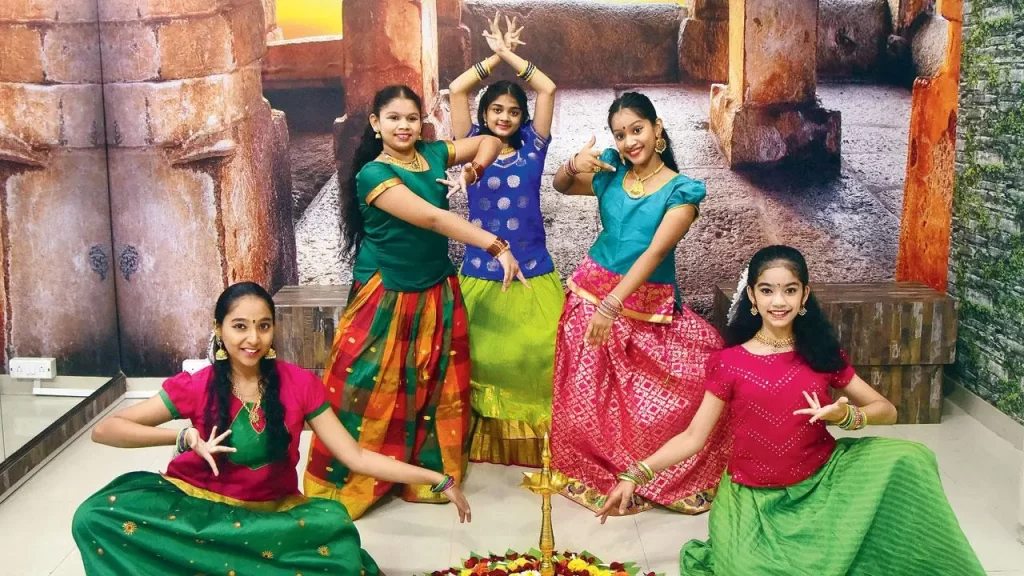Mumbai is one of the few places out of Kerala that Onam is celebrated in full glory. Here’s where you can shop for saris and Veshtis, stock up on chips, and lose yourself to dance
Onam ends on August 29 but the 10-day celebrations continue across communities—atheist and agnostic; Malayalee or not. The celebrations are to mark virtuous demon king Mahabali’s visit to Earth. His story is part of Vishnu’s Vamana avatar.
Given the size and enthusiasm of the Diaspora in the city, celebrations are sometimes even more elaborate than in Kerala, says author, scriptwriter and columnist Anand Neelakandan. “When I came to Mumbai 10 years ago,” says the Goregaon-resident, “I found the community here more active and there were so many events that even non-Malayalees were part of.”

Women of the Nupur School of Dance in Kurla who take part in Onam celebrations in the nearby Keralite association
He estimates that about 20 lakh Malayalee-speaking people live in Mumbai. “When Onam approaches, Matunga market is aflutter with foods, clothes and [cultural] associations halls are filled with performing artistes practicing dance, drama, flowerrangoli for various competitions. Temples are flooded in flowers that bloom just in time for the morning puja, which is one of my favourite things to eat,” he says.
The Kochu Guruvayoorappan temple set-up by Ashtika Samaj at Matunga draws out an elaborate flower-rangoli every morning. “For 10 days, we ensure that particular types of flowers, each of which have significance for the puja, are delivered to the temple,” says the manager of the temple, which dates back to 1923.
 Shopkeepers show their prized snacks that have come in for Onam at Matunga. PICS/PRADEEP DHIVAR
Shopkeepers show their prized snacks that have come in for Onam at Matunga. PICS/PRADEEP DHIVAR
In the markets buzzing outsides, new, authentic veshtis—measuring exactly 1.86 metres—flutter on display along the entrance. Married to them are the inimitable, elegant Kerala sarees: muted Cream with a gold border, with a few buttis or a thin line of another colour for renegades. “There are many markets where you can buy authentic traditional Onam wear; even Navi Mumbai has areas such as Nerul,” says Anand.

The Kochu Guruvayoorappan temple readies itself for the big day at Matunga
After the attire come the snacks to serve visiting family and friends: Annapurna store in Matunga or The Kerala Store outside Nerul station are the spots for iconic Unniyappam and Mayappam—both are square chips but the former is made of semi-ripe banana directly fried in coconut oil the latter is made banana that are steamed first.
Besides spending the day with the family and community, there are many cultural programmes one can attend to be part of the culture that gave us tapioca chips and pazham pori (banana fritters). “People can go to their local Kerala association [almost every area has one] to watch performance dance competitions, and play games Pantukali,” Ramachandran from Kelli association in Nerul says.

A man looking to purchase the perfect Veshti to mark the special day
Kelli also hosts dance performances specific to Onam, says Nisha Gilbert who runs the Nupur School of Dance in Kurla. “The most famous dance form is Puli Kali, which refers to the pantomime of the gait of the tiger, and dancers dress up as the feline. The other is the more classical Kaikottikali, and is performed by both men and women. Another unique one is the Thumbi Thullal or the dance of the dragonfly, in which a girl mimics the fluttering wings of the delicate insect to the tempo set by the clapping of eight to 10 girls encircling her.” So this Onam weekend, plan your activities and make the best of what the wonderful festival has to offer to you and your family.
Source : Mid-day


